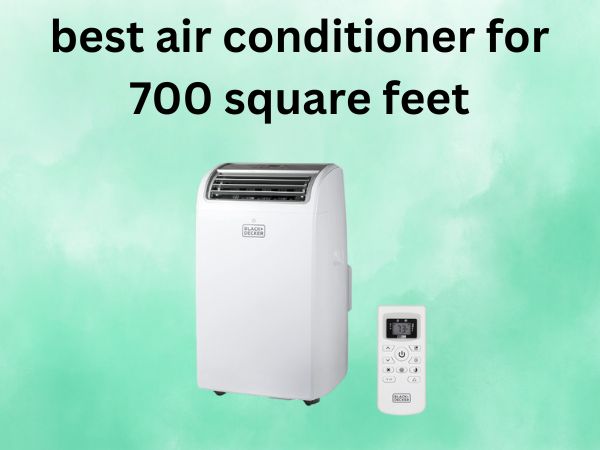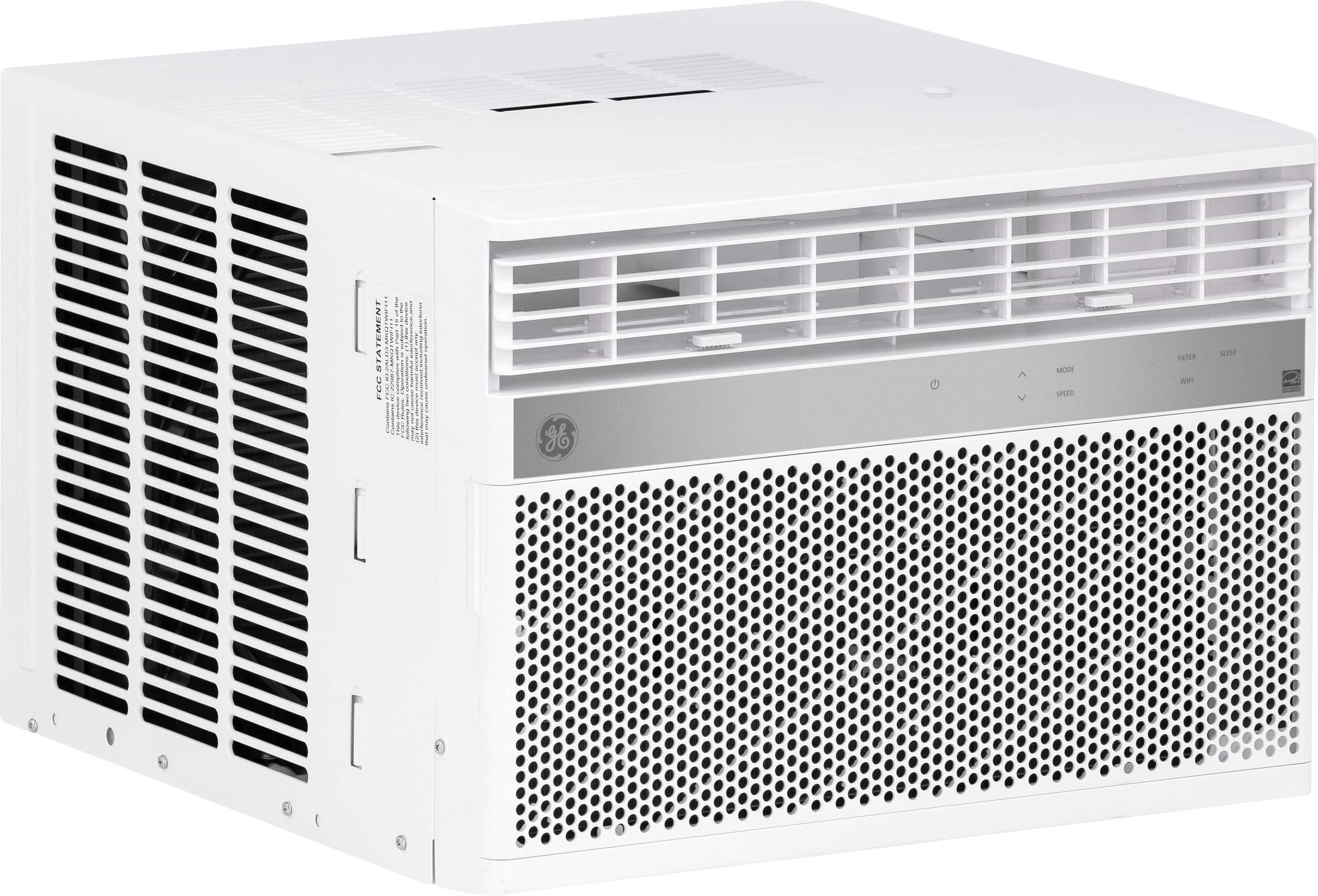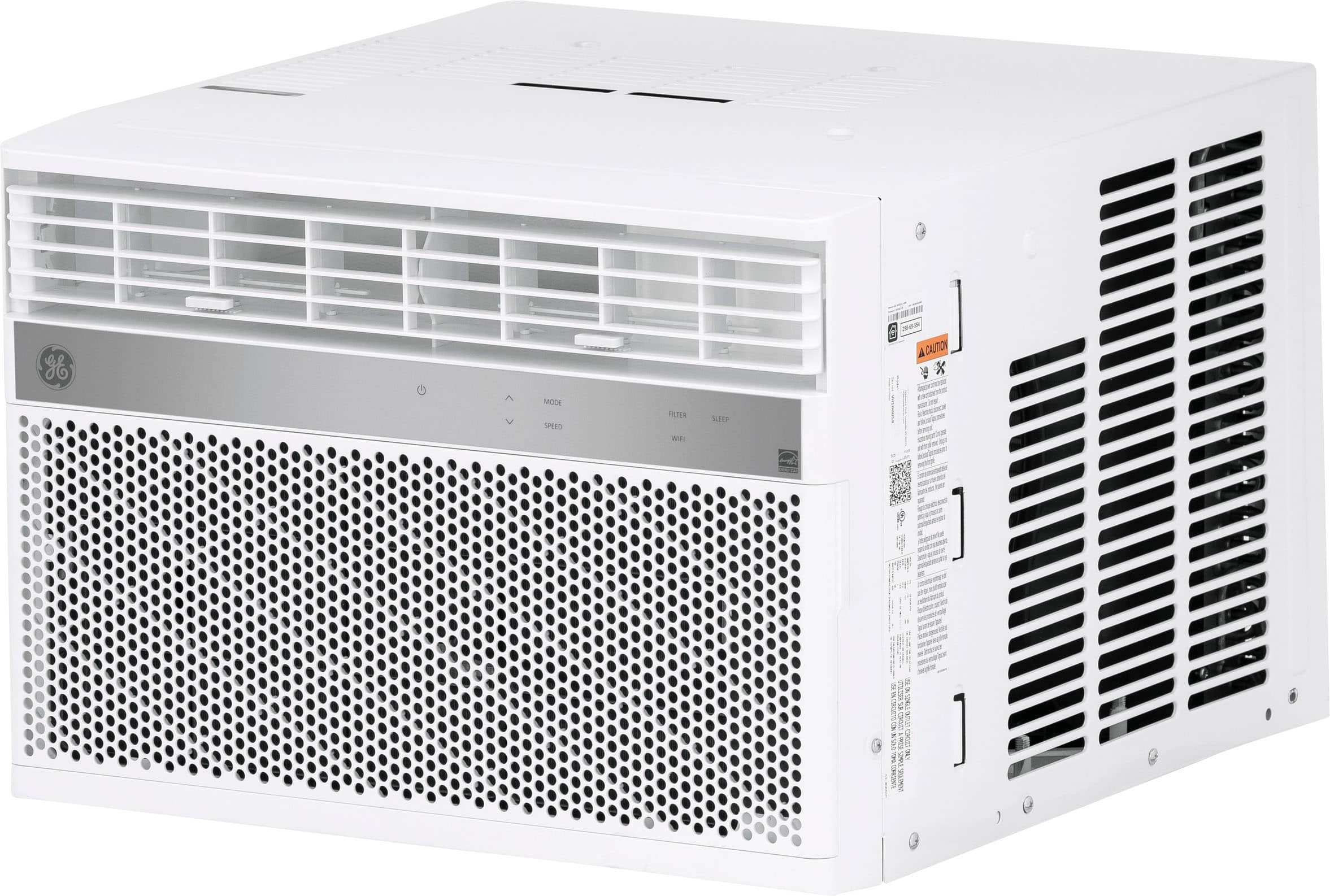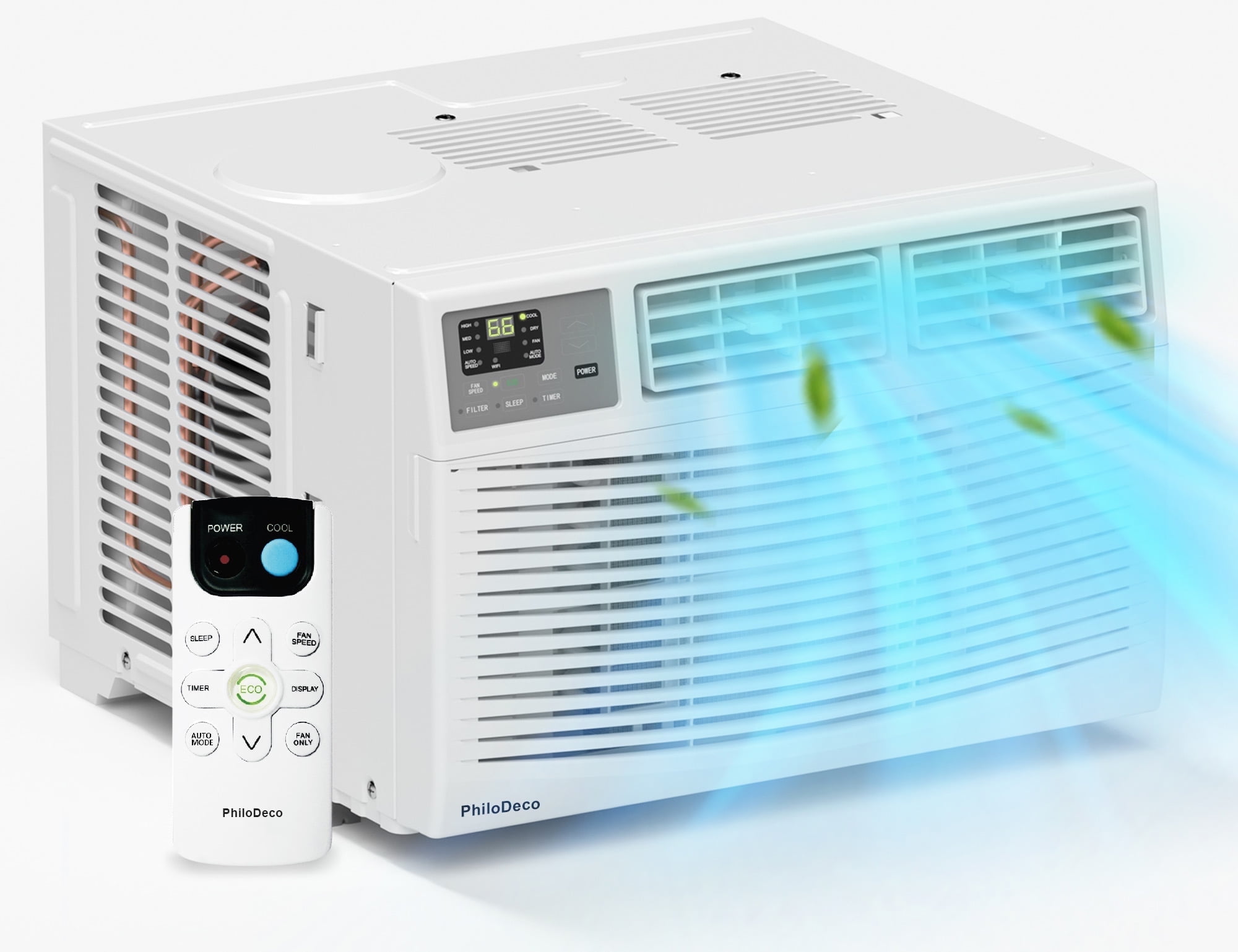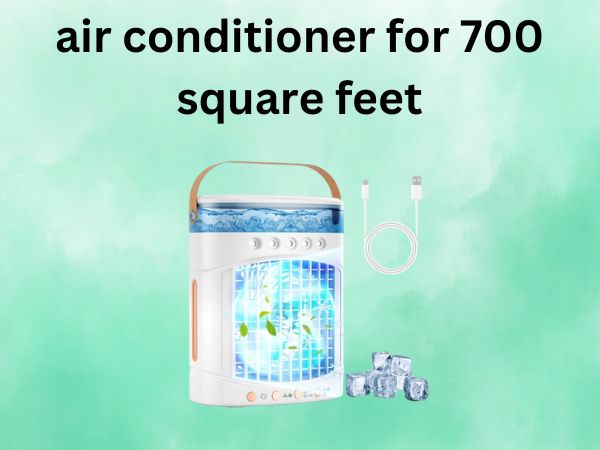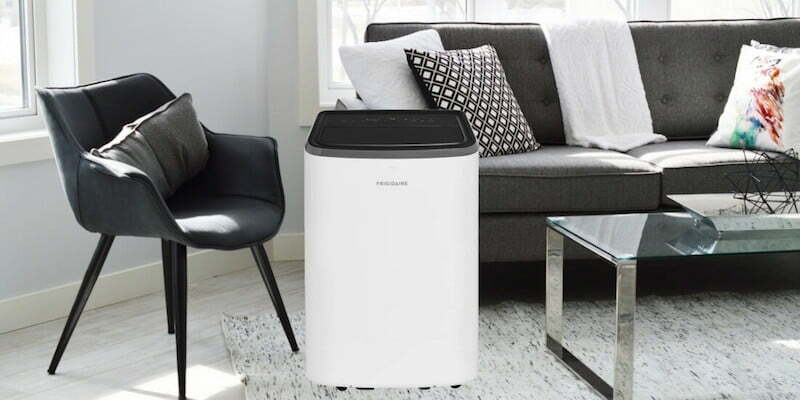Best Air Conditioner For 700 Square Feet
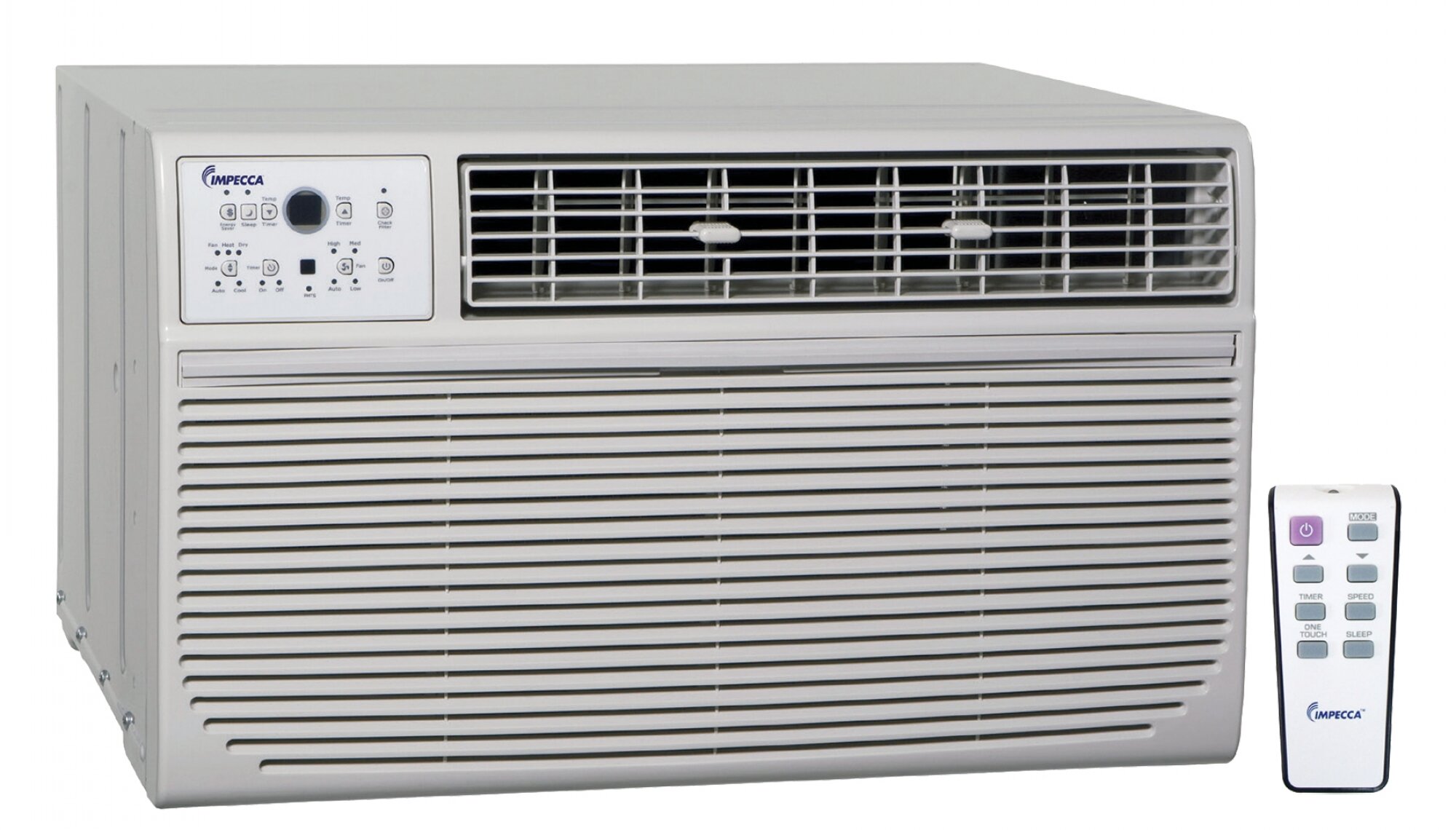
Frequently Asked Questions: Choosing the Best Air Conditioner for 700 Square Feet
Finding the perfect air conditioner for a 700 square foot space can feel overwhelming. We've compiled the most common questions to help you make an informed decision and stay cool and comfortable.
Question 1: How many BTUs do I really need to cool 700 square feet?
The general rule of thumb is that you need 20 BTUs (British Thermal Units) per square foot. So, for 700 square feet, you'll likely need an air conditioner with around 14,000 BTUs. However, several factors can influence this number:
- Climate: If you live in a particularly hot and humid area, you might consider a slightly higher BTU rating, perhaps closer to 15,000 BTUs.
- Sun Exposure: Rooms with lots of sunlight exposure will require more cooling power. Increase the BTU recommendation by about 10% if the room gets direct sunlight for a significant portion of the day.
- Insulation: Poor insulation will cause heat to leak in, requiring a more powerful AC unit. Older homes often have poorer insulation than newer ones.
- Number of Occupants: If the room is frequently occupied by multiple people, you'll need to account for the additional body heat. Add about 600 BTUs for each additional person.
- Appliances: Heat-generating appliances like computers or stoves can also impact cooling needs.
Always err on the side of slightly more BTUs rather than too few. An underpowered AC unit will run constantly, struggle to cool the space effectively, and ultimately waste energy.
Question 2: What type of air conditioner is best for a 700 square foot space: window, portable, or mini-split?
Each type has its pros and cons:
- Window Air Conditioners: These are generally the most affordable option for cooling a single room. They're easy to install (in most cases) and are readily available in the 14,000-15,000 BTU range.
- Pros: Lower initial cost, relatively easy installation, effective cooling for a single room.
- Cons: Can be noisy, blocks a window, can be less secure, and may not be aesthetically pleasing.
- Portable Air Conditioners: These offer flexibility, as they can be moved from room to room. However, they are often less efficient than window units and require venting to the outside via a window kit.
- Pros: Portability, no permanent installation required.
- Cons: Less efficient than window units, often noisier, require venting to a window, can take up floor space.
- Mini-Split Air Conditioners (Ductless): These consist of an outdoor compressor unit and an indoor air handler. They are more expensive to install but offer superior efficiency, quieter operation, and more precise temperature control.
- Pros: Energy-efficient, quiet operation, precise temperature control, no window obstruction, can provide both heating and cooling.
- Cons: Higher initial cost, professional installation required, more complex system.
For a 700 square foot space, a window unit or a mini-split are generally the best choices. A portable unit could work, but you might sacrifice efficiency and increase noise levels. Consider your budget, installation preferences, and desired level of comfort when making your decision.
Question 3: What features should I look for in an air conditioner for this size room?
Beyond the BTU rating, consider these features:
- Energy Efficiency (EER or SEER): Look for a high Energy Efficiency Ratio (EER) or Seasonal Energy Efficiency Ratio (SEER) rating. A higher rating means the unit is more efficient and will save you money on your electricity bill. Look for an EER of 10 or higher, or a SEER of 14 or higher. Energy Star certified models are generally more efficient.
- Programmable Thermostat: Allows you to set a schedule, so the AC only runs when you need it, saving energy.
- Remote Control: For convenient operation from across the room.
- Sleep Mode: Gradually increases the temperature overnight for more comfortable sleeping and energy savings.
- Fan-Only Mode: Allows you to circulate air without cooling, which can be useful in milder weather.
- Filter Type: Look for a filter that is easy to remove and clean or replace. HEPA filters can be beneficial for allergy sufferers.
- Noise Level: Consider the decibel (dB) rating, especially if you're sensitive to noise. Quieter models are available, especially among mini-split systems.
Prioritize energy efficiency and features that will enhance your comfort and convenience.
Question 4: How much will it cost to run an air conditioner in a 700 square foot space?
The operating cost depends on several factors:
- Electricity Rate: Your local electricity rate (cost per kilowatt-hour or kWh).
- Air Conditioner's Wattage: A higher wattage means the AC unit consumes more electricity.
- Usage: How many hours per day you run the AC.
- Energy Efficiency (EER/SEER): A more efficient unit will cost less to run.
Here's a simplified way to estimate the cost:
- Find the wattage: Look for the wattage rating on the AC unit (e.g., 1200 watts).
- Convert to kilowatts: Divide the wattage by 1000 (e.g., 1200 watts / 1000 = 1.2 kW).
- Multiply by hours of use: Multiply the kilowatt usage by the number of hours you run the AC per day (e.g., 1.2 kW x 8 hours = 9.6 kWh).
- Multiply by electricity rate: Multiply the daily kWh usage by your electricity rate (e.g., 9.6 kWh x $0.15/kWh = $1.44 per day).
- Calculate monthly cost: Multiply the daily cost by the number of days in a month (e.g., $1.44/day x 30 days = $43.20 per month).
This is just an estimate. The actual cost may vary depending on the factors mentioned above. Using a smart thermostat and energy-efficient settings can help reduce your operating costs.
Question 5: Are there any installation considerations for a 14,000-15,000 BTU air conditioner?
Yes, there are a few things to keep in mind:
- Window Size: Ensure your window is the correct size to accommodate the air conditioner. Measure the width and height of the window opening carefully. Window AC units typically come with adjustable side panels to fit various window sizes, but there is a limit.
- Window Type: Some window types, such as casement windows, may require special installation kits or may not be suitable for window air conditioners at all.
- Electrical Outlet: Make sure you have a standard electrical outlet near the window. High-BTU air conditioners may require a dedicated circuit to prevent overloading the electrical system. Check the manufacturer's specifications.
- Support: For larger window units, consider using an additional support bracket to ensure the AC unit is securely mounted and won't fall.
- Venting (for Portable Units): Ensure the exhaust hose for a portable AC unit is properly vented to the outside. Improper venting can reduce efficiency and potentially introduce warm air back into the room.
- Professional Installation (for Mini-Splits): Mini-split systems require professional installation by a qualified HVAC technician. This includes running refrigerant lines, electrical wiring, and mounting the indoor and outdoor units.
Proper installation is crucial for optimal performance and safety. If you're unsure about any aspect of the installation, consult with a qualified professional.
Question 6: Can I use a smaller BTU air conditioner if I only need to cool part of the 700 square feet?
While it's tempting to use a smaller BTU air conditioner to save money, it's generally not recommended unless you have a way to effectively isolate a smaller portion of the 700 square foot space. For example, thick curtains or a partition that blocks airflow might make it suitable for a smaller AC.
Here's why:
- Inefficient Cooling: An undersized AC unit will struggle to maintain a comfortable temperature, especially during hot weather. It will run constantly, consuming more energy and potentially shortening its lifespan.
- Uneven Cooling: The area closest to the AC unit might be cool, but the rest of the room will likely remain warmer, creating an uncomfortable temperature gradient.
- Strain on the Unit: Running an AC unit continuously at its maximum capacity can put excessive strain on the compressor and other components, leading to premature failure.
It's better to choose the appropriate BTU rating for the entire 700 square foot space, even if you only use a portion of it regularly. You can always adjust the thermostat or use the fan-only mode to reduce cooling when needed.
Question 7: How do I maintain my air conditioner to ensure it runs efficiently and lasts longer?
Regular maintenance is essential for keeping your air conditioner running smoothly and extending its lifespan:
- Clean or Replace Filters Regularly: Dirty filters restrict airflow, reducing efficiency and potentially damaging the unit. Clean or replace filters every 1-3 months, or more frequently if you have pets or allergies.
- Clean the Coils: Periodically clean the evaporator and condenser coils (the coils inside the unit and outside the unit, respectively) to remove dirt and debris. You can use a soft brush or a vacuum cleaner with a brush attachment. For mini-split systems, this often requires professional cleaning.
- Check the Drainage: Ensure the condensate drain is clear of obstructions to prevent water from backing up and causing damage.
- Inspect for Leaks: Check for any signs of refrigerant leaks, such as ice buildup or unusual noises. If you suspect a leak, contact a qualified HVAC technician.
- Clear Obstructions: Make sure there are no obstructions around the outdoor unit (for mini-split systems) that could restrict airflow.
- Consider Professional Servicing: Schedule annual professional servicing to ensure your AC unit is running at peak efficiency and to identify any potential problems early on.
Following a regular maintenance schedule will help you save money on energy bills, prevent costly repairs, and extend the life of your air conditioner.

